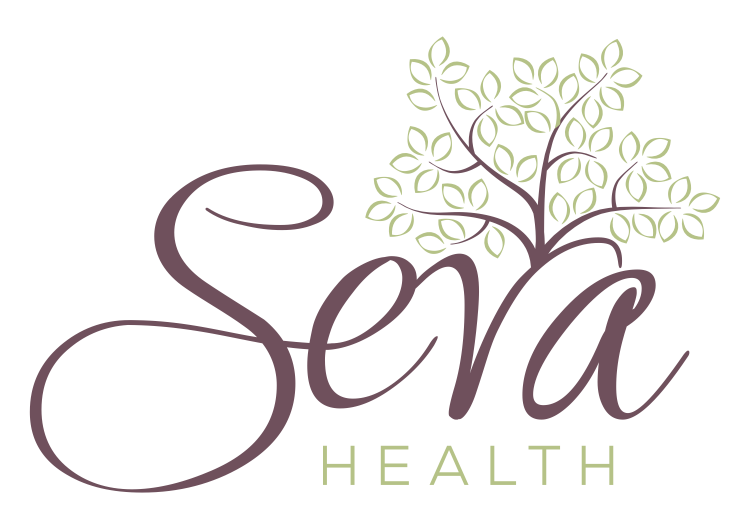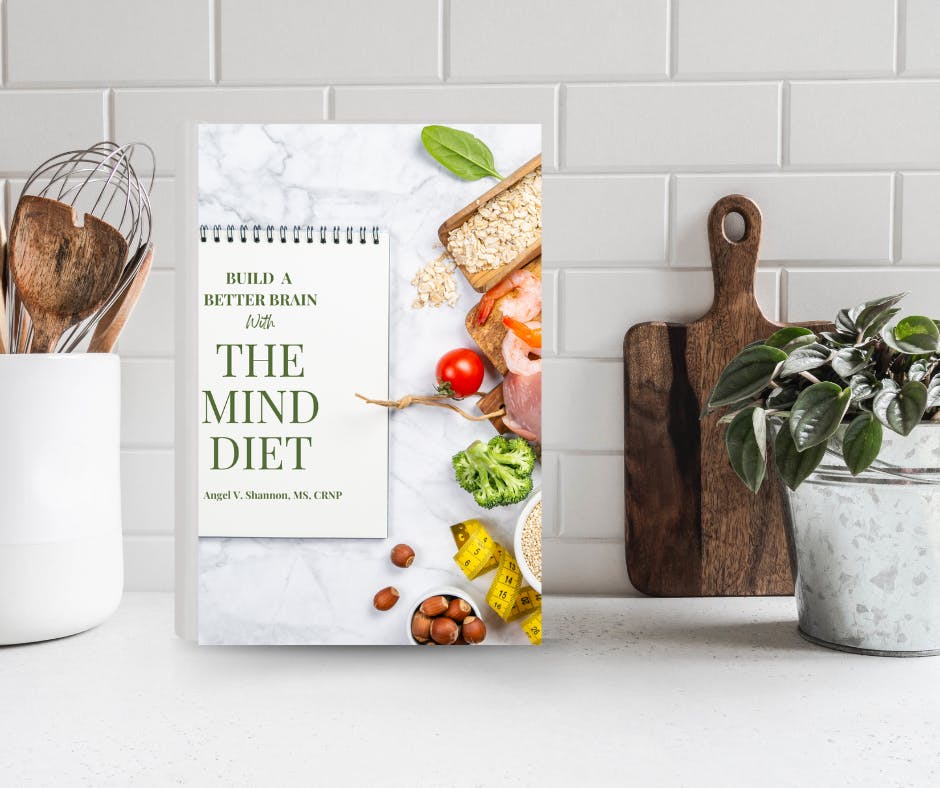
18 Mar 10 Ways to Become the Healthiest Version of Yourself
From fueling your brain with the right fats to prioritizing protein, plants, and quality sleep, optimizing your health is about balance. When we feel our best, we sleep better, stay focused, make healthier food choices, and move our bodies with ease. But when we’re out of sync, stress, and fatigue can lead us to crave quick fixes like sugary snacks, trapping us in an unhealthy cycle.
Breaking free from this pattern starts with simple, sustainable habits. I’ve put together ten of my favorite, easy-to-start strategies to improve your physical and mental well-being—no focus on weight, just practical ways to nourish your body and mind from the inside out.
1. Feed Your Brain Right
Your brain is the command center of your body, influencing memory, emotion, and movement. A well-nourished brain sharpens cognitive function, reduces brain fog, and supports emotional health while lowering the risk of neurodegenerative diseases like Alzheimer’s.
Eating a diverse range of fruits and vegetables supplies essential vitamins, minerals, and antioxidants that protect against oxidative stress. Certain foods are particularly beneficial for brain health:
- Oily fish provides omega-3 fatty acids crucial for brain function.
- Whole grains offer steady energy by regulating glucose supply.
- Blueberries contain antioxidants that may enhance memory and reduce stress.
- Nuts and seeds, rich in vitamin E and zinc, support brain cell protection.
- Leafy greens like broccoli deliver vitamin K, which promotes cognitive function.
The Mediterranean diet, emphasizing whole foods, healthy fats, and lean proteins, is known to support brain health and slow cognitive decline. Next time you plan a meal, consider whether it fuels your brain. Check out Build a Better Brain for tons of recipes and lifestyle tips and tricks to support your brain health – plus a bonus MIND diet eBook to support starting a Mediterranean diet.
2. Strengthen Your Gut Health
Your gut houses trillions of bacteria that influence digestion, immunity, metabolism, and even mood. An imbalanced gut can lead to bloating, digestive discomfort, skin issues, and even heightened stress levels.
Supporting gut health starts with:
- Eating fiber-rich foods like whole grains, legumes, and vegetables.
- Incorporating probiotics from fermented foods like yogurt, kimchi, and miso.
- Reducing stress through relaxation techniques.
- Limiting processed foods, sugar, and alcohol to prevent gut irritation.
By prioritizing gut-friendly habits, you support overall well-being from the inside out.
3. Choose Whole Carbohydrates
Carbs often get a bad rap, but they’re essential for energy and brain function. The key is choosing complex carbohydrates over refined ones.
- Whole grains, legumes, and fiber-rich vegetables offer a steady energy release.
- Refined carbs like white bread and pastries cause rapid spikes in blood sugar, leading to crashes and cravings.
- Low-carb diets can be effective short-term but are often unsustainable, leading to weight regain once carbohydrates are reintroduced.
Instead of cutting carbs, focus on nutrient-dense sources to sustain energy and support overall health.
4. Eat More Plants
A plant-forward diet can significantly improve digestion, boost immunity, and lower the risk of chronic diseases. Experts recommend aiming for 30 different plant-based foods per week for optimal gut diversity.
Some powerhouse plant foods include:
- Leafy greens (spinach, kale)
- Legumes (lentils, chickpeas)
- Nuts and seeds (walnuts, flaxseeds)
- Colorful fruits (blueberries, tomatoes)
- Whole grains (oats, quinoa)
Eating a rainbow of plant-based foods ensures a wide range of antioxidants and essential nutrients.
5. Prioritize Protein
Protein is crucial for muscle maintenance, metabolism, and satiety. It also plays a key role in recovery after exercise and supports healthy aging, especially during menopause.
Signs of protein deficiency include muscle weakness, brittle hair and nails, and frequent fatigue. To meet your protein needs, incorporate:
- Lean meats and fish
- Eggs and dairy
- Legumes, nuts, and seeds
- Plant-based options like tofu and tempeh
A balanced diet with sufficient protein helps keep cravings at bay and supports overall strength and vitality.
6. Cut Back on Added Sugar
Excess sugar leads to energy crashes, cravings, and metabolic issues. Hidden sugars lurk in many processed foods, from cereals to sauces.
To reduce sugar intake:
- Check food labels for added sugars like corn syrup, fructose, and sucrose.
- Replace sugary snacks with whole foods like fruit, yogurt, and nuts.
- Prioritize protein and fiber-rich meals to curb cravings.
Breaking free from sugar dependence can improve energy levels, mental clarity, and overall health.
7. Move Your Body in a Way You Enjoy
Regular movement strengthens muscles and bones, supports heart health, and boosts mental well-being. The best workout? The one you enjoy and stick with.
- If running isn’t for you, try walking, yoga, or swimming.
- If HIIT feels too intense, opt for Pilates or cycling.
- Aim for at least 30 minutes of movement daily to reap long-term benefits.
Any form of movement is beneficial, so find what works for you and stay consistent.
8. Consider Targeted Supplements
While whole foods should be your foundation, supplements can help fill nutritional gaps, especially for those with specific dietary restrictions.
Some beneficial supplements include:
- Vitamin D (essential for bone health and immunity)
- Magnesium (supports relaxation and sleep)
- Collagen (promotes skin and joint health)
If you suspect a deficiency, reach out, and let’s work together to determine the best supplement for you.
9. Focus on Healthy Fats
Fat is an essential macronutrient that supports cell function, brain health, and hormone balance.
Incorporate healthy fats such as:
- Olive oil, nuts, and avocados (monounsaturated fats)
- Salmon, sardines, and flaxseeds (omega-3 fatty acids)
Prioritizing these sources helps regulate cholesterol levels and supports overall health.
10. Prioritize Quality Sleep
Sleep impacts stress levels, cognitive function, metabolism, and immunity. Poor sleep can derail even the best health intentions.
To improve sleep quality:
- Establish a consistent bedtime routine.
- Limit screen time before bed to reduce blue light exposure.
- Avoid caffeine in the afternoon.
- Include sleep-promoting foods like oats, bananas, and dairy.
- Consider magnesium or valerian root supplements for relaxation.
Making sleep a priority enhances every other aspect of your health, ensuring you wake up refreshed and ready to take on the day.
Support Your Brain & Enhance Mental Well-Being with Nutrition
Your brain thrives on the right nutrients. A strategic approach to diet and supplements can improve focus, balance mood, and support long-term cognitive health. By making targeted adjustments, you can boost mental clarity, sustain energy, and enhance overall well-being.
? Fuel Your Brain with the Right Foods – A well-balanced diet reduces inflammation, supports gut health, and protects against cognitive decline. The Mediterranean, DASH, and low-glycemic diets are particularly beneficial for brain function and sustained energy.
? Stabilize Mood & Reduce Anxiety – Nutrition plays a key role in neurotransmitter balance, helping to improve mood, reduce stress, and enhance mental clarity.
? Take the Guesswork Out with Personalized Testing – Understanding your unique macronutrient, micronutrient, and genetic profile can help you tailor a diet and supplement plan for optimal cognitive function.
? Strengthen the Gut-Brain Connection – A healthy gut supports mental clarity and emotional well-being. Amino acids and probiotics help balance neurotransmitters, reduce stress, and improve focus.
? Enhance Mental Clarity & Energy – Addressing factors like insulin resistance and hormonal balance can help reduce brain fog, fatigue, and difficulty concentrating.
? Curb Cravings & Prevent Energy Dips – The right nutrient-dense foods help stabilize blood sugar, prevent mood swings, and sustain energy levels for optimal brain performance.
Your cognitive health and emotional well-being deserve attention. By focusing on nutrition, supplements, and lifestyle strategies, you can support your brain and feel your best.
Start Nourishing Your Brain Today!


No Comments